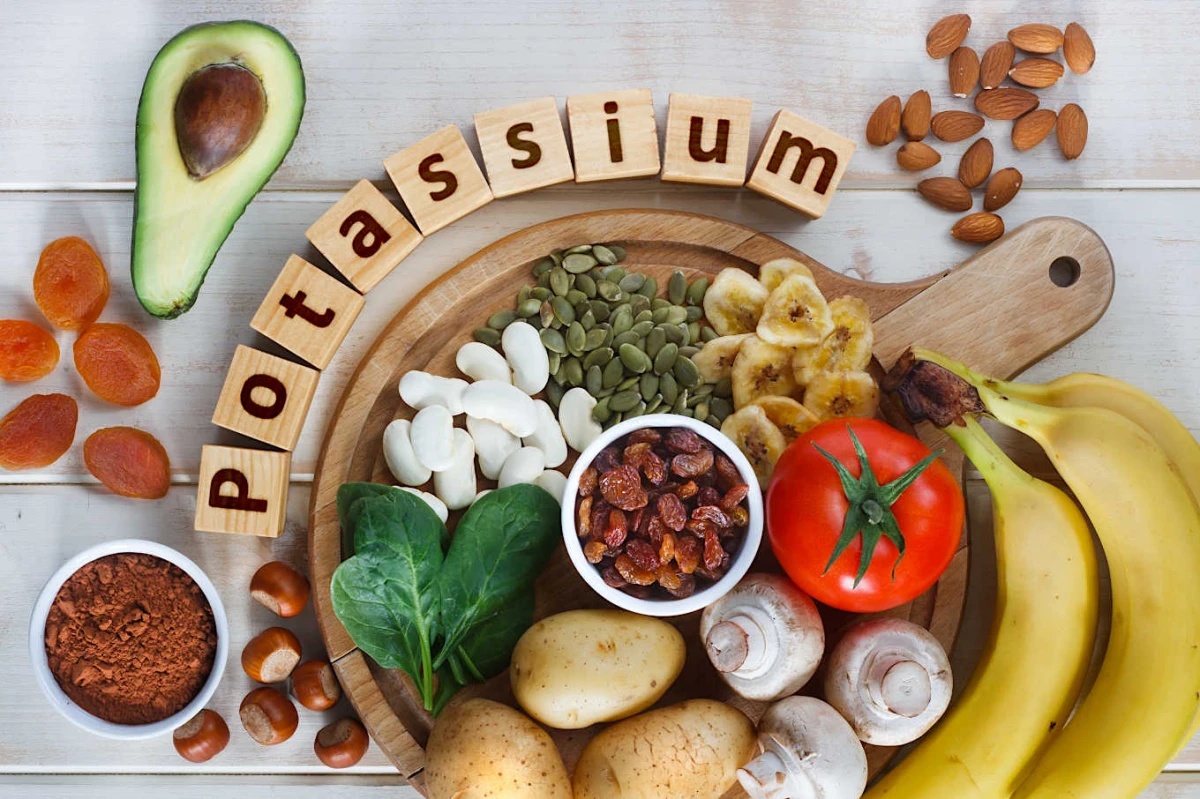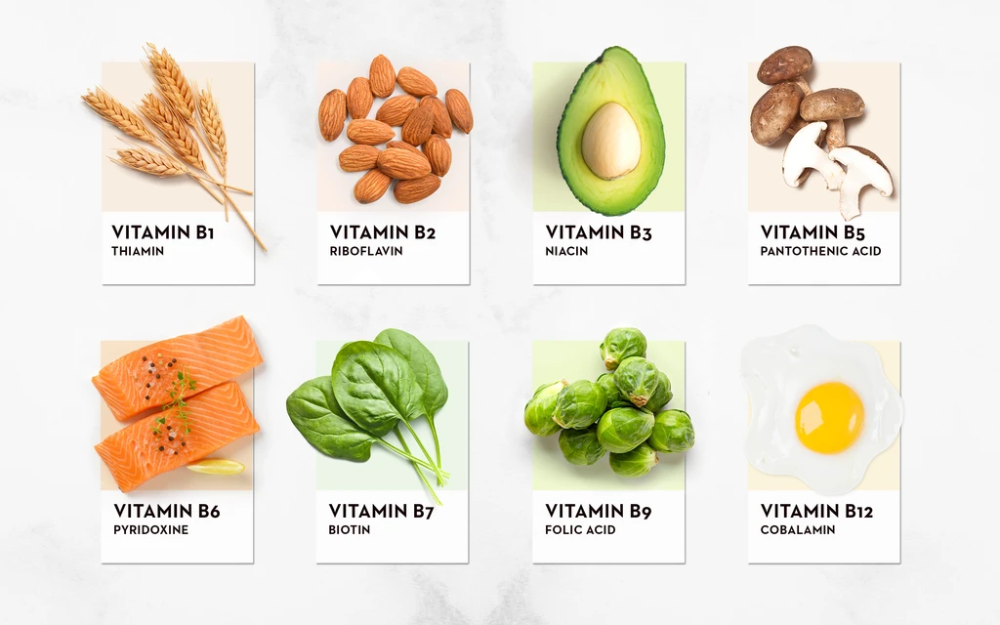Understanding Potassium
Potassium is an electrolyte, a mineral that carries an electric charge when dissolved in body fluids. It is predominantly found inside the cells of the body and is crucial for maintaining proper fluid balance, nerve function, and muscle contraction. The body does not produce potassium on its own, so it must be obtained through dietary sources.
Functions of Potassium in the Body
Fluid Balance
Potassium helps regulate fluid balance by controlling the movement of fluids in and out of cells. This balance is essential for maintaining proper hydration levels and preventing conditions like dehydration or edema.
Muscle Function
Potassium plays a key role in muscle function, including the contraction and relaxation of muscles. It helps transmit nerve impulses that stimulate muscle contractions, making it essential for activities like movement and exercise.
Heart Health
Potassium is critical for maintaining a regular heartbeat. It helps regulate the electrical activity of the heart, ensuring that it beats at a steady pace. Adequate potassium intake is associated with a lower risk of cardiovascular diseases, such as high blood pressure and stroke.
Nerve Signaling
Potassium ions are involved in transmitting nerve signals throughout the body. They help facilitate communication between nerve cells, allowing for proper sensory perception, movement, and cognitive function.
Sources of Potassium
Potassium is naturally present in many foods, with particularly high concentrations found in fruits, vegetables, and legumes. Some of the best dietary sources of potassium include:
- Bananas
- Sweet potatoes
- Spinach
- Avocados
- Oranges
- Tomatoes
- Beans (such as kidney beans, black beans, and lentils)
- Yogurt
- Salmon
- Potatoes
Recommended Daily Intake
The recommended daily intake of potassium varies depending on age, sex, and individual health factors. In general, adults should aim to consume around 3,500 to 4,700 milligrams of potassium per day. However, specific recommendations may differ for certain populations, such as pregnant women or individuals with certain medical conditions.
Health Benefits of Potassium
Blood Pressure Regulation
Potassium plays a crucial role in regulating blood pressure levels. It helps counteract the effects of sodium, a mineral that can raise blood pressure when consumed in excess. A diet rich in potassium and low in sodium is associated with lower blood pressure and a reduced risk of hypertension.
Stroke Prevention
Adequate potassium intake has been linked to a lower risk of stroke, a serious condition caused by disrupted blood flow to the brain. Potassium helps maintain healthy blood vessels and may reduce the risk of blood clots and arterial blockages that can lead to stroke.
Bone Health
Potassium is involved in maintaining the acid-base balance in the body, which is essential for bone health. A diet high in potassium-rich fruits and vegetables may help preserve bone density and reduce the risk of osteoporosis and fractures.
Muscle Cramp Prevention
Potassium plays a role in preventing muscle cramps and spasms by regulating muscle contractions. Adequate potassium levels help ensure proper muscle function and may reduce the incidence of cramping during exercise or physical activity.
Kidney Stone Prevention
Potassium citrate, a form of potassium found in certain foods and supplements, has been shown to reduce the risk of kidney stone formation. It helps alkalinize the urine, making it less acidic and reducing the likelihood of crystal formation in the kidneys.
Metabolic Support
Potassium is involved in various metabolic processes, including carbohydrate metabolism and protein synthesis. It helps convert food into energy and supports the body’s overall metabolic functions, contributing to overall health and vitality.
Potential Risks of Potassium Deficiency
A deficiency in potassium, known as hypokalemia, can lead to numerous health problems due to its essential role in bodily functions. Some potential risks of potassium deficiency include:
- Muscle weakness and cramps
- Fatigue and weakness
- Irregular heartbeat (arrhythmia)
- High blood pressure
- Increased risk of stroke
- Constipation
- Tingling or numbness
FAQs (Frequently Asked Questions)
Can I get enough potassium from supplements alone?
While potassium supplements are available, it’s generally best to obtain potassium from dietary sources. Whole foods like fruits, vegetables, and legumes not only provide potassium but also offer other essential nutrients and dietary fiber.
Are there any medications that can affect potassium levels in the body?
Yes, certain medications, such as diuretics (water pills), corticosteroids, and some laxatives, can affect potassium levels. It’s essential to consult with a healthcare professional if you’re taking medication and have concerns about your potassium levels.
Can I consume too much potassium?
While potassium toxicity (hyperkalemia) is rare in healthy individuals with normal kidney function, excessive potassium intake can be harmful, especially for those with kidney disease or other medical conditions. It’s important to follow recommended dietary guidelines and consult with a healthcare provider if you have concerns.
Are there any special considerations for athletes or individuals who engage in intense physical activity?
Athletes and active individuals may have higher potassium needs due to increased fluid losses through sweat and greater muscle exertion. Ensuring an adequate intake of potassium-rich foods can help replenish electrolytes lost during exercise and support muscle function and recovery.
Can potassium supplements interact with other medications or supplements?
Yes, potassium supplements can interact with certain medications, including potassium-sparing diuretics, ACE inhibitors, and potassium-based salt substitutes. It’s essential to talk to a healthcare provider before taking potassium supplements, especially if you’re taking other medications or supplements.
Are there any specific dietary recommendations for increasing potassium intake?
Eating a varied diet that includes plenty of fruits, vegetables, legumes, and whole grains is the best way to ensure an adequate intake of potassium. Try to incorporate potassium-rich foods into your meals and snacks throughout the day to meet your nutritional needs.
Conclusion
Potassium is an essential mineral with numerous health benefits, including regulating blood pressure, supporting muscle function, and promoting heart health. By including potassium-rich foods in your diet and maintaining a balanced lifestyle, you can optimize your potassium intake and support overall health and well-being. If you have specific health concerns or dietary questions, consult with a healthcare provider or registered dietitian for personalized guidance and recommendations.
- Nasolabial Fold Fillers – Marionette Lines Near Shepperton, Surrey - May 31, 2025
- What Is The Downtime For A Liquid Facelift? - May 31, 2025
- Vista Edge Vape Battery Vs Standard 510 Batteries: Performance Tested - May 31, 2025



